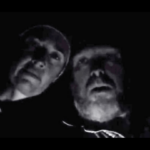Three Crimes that Aren’t Usually Enforced

In NSW, there are thousands upon thousands of criminal offences scattered throughout many different pieces of legislation; from murder and sexual assault, down to the many hundreds of driving offences contained in our web of traffic legislation.
But not all criminal laws are actually enforced, so let’s take a look at criminal offences which are rarely ever prosecuted.
Abortion
In NSW, abortion is an offence under section 82 of the Crimes Act (NSW) 1900 (NSW), and attracts a maximum penalty of 10 years imprisonment. Under section 83 of the Act, any person who terminates another’s pregnancy can also face up to 10 years imprisonment.
But abortions are regularly performed in NSW. This is because the courts have found that an abortion is legal if undertaken to preserve the physical or mental health of the pregnant woman.
Abortion has been decriminalised in other parts of Australia, including Tasmania, Victoria and the ACT.
Using defaced currency
It’s probably no surprise that making fake money is a crime. However, you may not be aware that the last time you used a note with a torn corner or scribbles, you may have been committing crime.
It is a Commonwealth offence not only to deface, disfigure, mutilate or destroy any coins or paper money, but also to knowingly have them in your possession. Under section 18 of the Crimes (Currency) Act 1981 (Commonwealth), simply possessing defaced coins comes with a maximum penalty of up to two years imprisonment and/or a $5,000 fine..
It is, however, a defence that you did not know the money in your possession was defaced, disfigured or mutilated. Even so, this law would probably be hard to follow, unless you thoroughly inspect your change every time you pay for something.
Specific kinds of theft
Alongside the standard offence of larceny in section 117 of the Crimes Act, there are a number of offences of stealing very specific items, such as dead wood, rocks and stones, plants, and live or dead fences under section 515 of the Crimes Act.
According to the Judicial Commission of NSW, just one person was guilty of stealing plants in gardens since 2011, and one for stealing wood.
And under section 525 of the Crimes Act NSW, damaging a book from a library comes with a fairly substantial penalty – up to one year imprisonment and/or a fine of $1100, in addition to a fine equal to four times the value of the damage.
Can I still be prosecuted under unenforced or obsolete laws?
The short answer is yes.
According to the NSW DPP Prosecution Guidelines, the obsolescence or obscurity of a law is something to be taken into account when deciding whether to press charges in the first place. These guidelines are supposed to be followed by police as well as the DPP.
But in reality, police have a large amount of discretion when it comes to dealing with people they suspect of crimes – and are at liberty to bring criminal charges, whether they are outdated or not.






